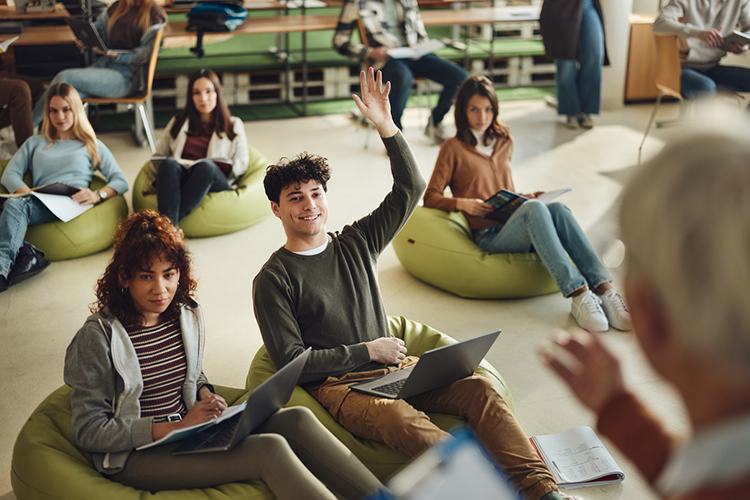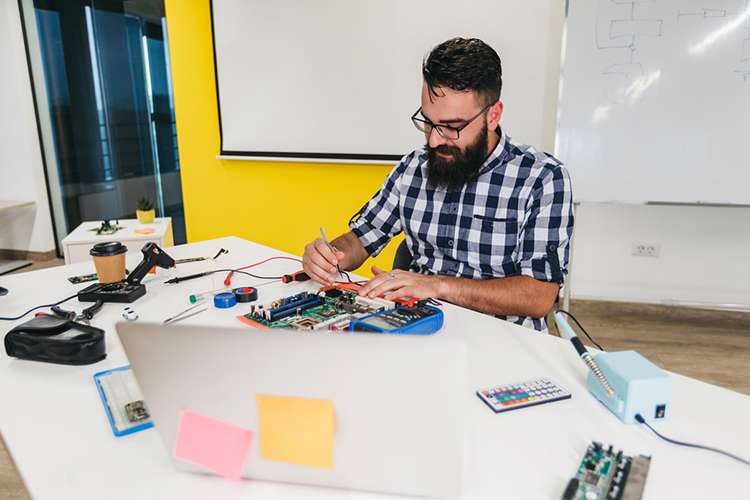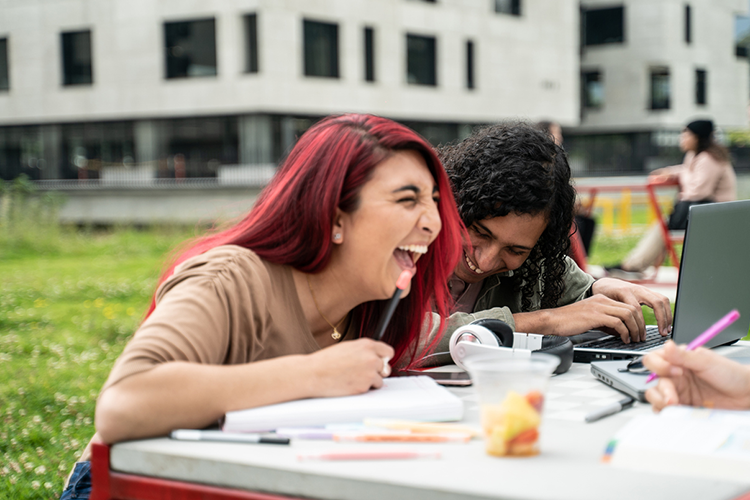What is Experiential Learning Theory and Why it Matters
Updated: August 28, 2024

Experiential Learning Theory emphasizes learning through experience and reflection rather than passively receiving information. Originating from scholars like David Kolb, it connects deeply with other educational philosophies focusing on active participation. Why does this matter today?
Experiential learning can enhance skill acquisition, promote deeper understanding, and support personal growth in our rapidly changing world. Bridging the gap between theory and practice prepares students and professionals alike to tackle real-world challenges with confidence and adaptability. It’s all about learning by doing.

What are the Core Principles of Experiential Learning Theory?
At its heart, Experiential Learning Theory is about learning through experience. It involves four key stages: concrete experience, reflective observation, abstract conceptualization, and active experimentation.
This cycle helps learners create knowledge by transforming their experiences into meaningful insights. Hands-on engagement, thoughtful reflection, and applying new concepts in real-world scenarios are crucial.
This approach means you’re memorizing facts and truly understanding and applying them, which can make learning more engaging and effective.
How Does Experiential Learning Differ from Traditional Classroom Learning?
Experiential learning takes a different path from traditional education. Instead of listening to lectures and memorizing facts, it focuses on doing and reflecting. This method encourages active participation, allowing you to learn from real-world experiences and hands-on activities.
Source of Knowledge
Experiential learning draws knowledge from experiences and personal reflections. In contrast, traditional learning often relies on textbooks and lectures, where knowledge is delivered in a more passive manner.
Skill Development
Experiential learning emphasizes practical skills developed through real-world applications. You get to practice and hone skills in actual scenarios, unlike traditional methods that might focus more on theoretical understanding.
Feedback Mechanism
In experiential learning, feedback is immediate and context-specific, allowing for quick adjustments and improvements. Traditional classroom settings might offer delayed feedback, often through standardized tests or formal evaluations.
Learning Pace
Experiential learning lets learners set their own pace based on their engagement with the material. Traditional classrooms often follow a fixed schedule, which may not suit everyone’s learning speed.

What are the Stages of Kolb’s Experiential Learning Cycle?
Kolb’s Experiential Learning Cycle includes four stages that work together to create a continuous learning process. This cycle offers a structured learning approach that encourages personal and professional growth by building on past experiences and reflecting on them to create new knowledge.
Concrete Experience (CE)
This is the first stage, where the learning process begins with a direct encounter or experience. This might involve trying something new or looking at a familiar situation differently.
It could be as simple as participating in a workshop or as complex as managing a project. This experience lays the groundwork for reflection and analysis, providing a tangible basis for further learning.
This stage focuses on fully engaging with the situation and experiencing it with all senses.
Reflective Observation (RO)
In this stage, learners step back to observe and reflect on their experiences from different angles. This involves thinking about what happened, analyzing the situation, and considering why things unfolded the way they did.
Learners might ask themselves questions like “What did I notice?” or “What could I have done differently?” Reflection is critical in connecting experience to understanding, allowing learners to gain deeper insights into their experiences.
Abstract Conceptualization (AC)
This stage involves drawing conclusions and forming theories or concepts based on reflections. Learners integrate their observations into a coherent framework, developing or modifying new ideas.
This stage is about understanding the patterns and principles underlying the experiences and using this understanding to conceptualize broader applications. It helps learners transition from specific experiences to general insights that can guide future actions.
Active Experimentation (AE)
The final stage of the cycle is about applying the new concepts and theories in real-world situations. Learners use their newfound understanding to plan and implement changes or try out new approaches. This could involve setting up experiments, tackling new projects, or adjusting existing practices.
Active experimentation allows learners to test their ideas and refine their understanding, starting the cycle anew with fresh experiences and challenges.
What are Some Examples of Experiential Learning Activities?
Experiential learning activities engage learners in practical, hands-on experiences that connect theory to practice. They are designed to encourage exploration, problem-solving, and critical thinking and span a wide range of educational settings and disciplines.
Field Trips and Excursions
Field trips offer students the opportunity to immerse themselves in real-world environments that are related to their studies. Whether it’s a visit to a historical site, a science museum, or a local business, field trips provide firsthand experiences that enrich classroom learning.
These excursions can enhance understanding by showing students the practical application of concepts and encouraging them to explore and ask questions in a natural setting.
Service Learning Projects
Service learning combines academic learning with community service, allowing students to apply their knowledge to address genuine community needs. These projects benefit the community and help students develop skills like teamwork, communication, and problem-solving.
Service learning projects often involve research, planning, and reflection, offering students a chance to make meaningful contributions while deepening their understanding of academic content.
Internships and Apprenticeships
Internships and apprenticeships provide students with extended, hands-on work experiences that bridge academic learning and professional skill development.
These experiences allow students to apply classroom theories in real-world settings, gain industry-specific skills, and make valuable connections with professionals.
Internships and apprenticeships are crucial for career readiness, offering insights into workplace dynamics and expectations.
What Challenges Might Educators Face When Implementing Experiential Learning?
Implementing experiential learning can be rewarding but also challenging for educators. It requires significant resources, planning, and flexibility, often requiring educators to step outside traditional teaching methods.
One major challenge is the need for curriculum redesign. Traditional educational systems may resist change, and educators must find ways to integrate experiential activities into established curricula. This might involve balancing experiential learning with standardized content and assessments.
Assessing experiential learning poses another challenge. Unlike traditional assessments, which focus on memorization and standardization, experiential learning requires process-oriented evaluation. Educators must develop methods to assess student growth and understanding through reflective practices and project outcomes.
Additionally, ensuring equal access to quality experiential learning opportunities is essential. Educators must strive to provide diverse experiences that cater to all students, regardless of their background or resources. This might involve securing partnerships with community organizations or businesses and finding creative solutions to logistical and financial constraints.
Can Experiential Learning Be Used in Online Education?
Yes, experiential learning can be incorporated into online education. While bringing hands-on experiences to a digital environment might seem challenging, creative solutions can bridge the gap. Online platforms offer unique opportunities for experiential learning through virtual simulations, remote collaborations, and interactive digital tools. These technologies allow students to use realistic scenarios and practice skills in a controlled setting.
For example, virtual labs can replicate scientific experiments, enabling students to research and analyze data without needing physical materials. Remote collaboration tools facilitate teamwork and problem-solving across geographical boundaries, providing a global project perspective. Interactive modules and gamified learning experiences can mimic real-world challenges, allowing students to apply their knowledge in engaging ways.
Online experiential learning also benefits from its flexibility and accessibility. Students can learn at their own pace, revisit materials, and access diverse resources from anywhere globally. Additionally, digital platforms can connect students with experts and peers from various backgrounds, fostering a rich learning community that enhances the overall experience.

Applying Experiential Learning Theory in Your Own Life
Experiential learning theory isn’t just for classrooms; it can also be valuable for personal and professional growth. By actively engaging with new experiences and reflecting on them, you can deepen your understanding and enhance your skills in any area of interest.
To apply experiential learning to your life, start by identifying areas where you want to grow or improve. Look for opportunities to engage in hands-on activities related to these goals, whether through volunteering, taking up a new hobby, or seeking out work experiences that challenge you.
Next, incorporate the four stages of Kolb’s learning cycle into your process. After each experience, reflect on what you’ve learned, think about how it applies to broader concepts, and experiment with new approaches based on your insights. This cyclical process encourages continuous learning and adaptation, helping you stay agile and open to new opportunities.
Remember, experiential learning is about taking an active role in your development. Be curious, seek feedback, and embrace challenges as chances to learn. By doing so, you’ll enhance your skills and foster a mindset of lifelong learning that can lead to personal and professional success.
FAQs
Who developed experiential learning theory and when?
David Kolb developed experiential learning theory in the 1970s. It was inspired by earlier work from scholars like John Dewey, Jean Piaget, and Kurt Lewin, who emphasized the importance of experience in the learning process.
How does experiential learning enhance long-term memory and retention?
Experiential learning enhances long-term memory by engaging learners in active, meaningful experiences that connect with prior knowledge. Reflecting on and applying new concepts helps reinforce understanding and embed information in memory, making it easier to recall later.
How does experiential learning support different learning styles?
Experiential learning supports various learning styles by incorporating hands-on activities, reflective observation, abstract conceptualization, and active experimentation. This diverse approach caters to different preferences, whether learners prefer visual, auditory, kinesthetic, or other styles, ensuring a comprehensive learning experience.
What role does failure play in the experiential learning process?
Failure is seen as a valuable part of the experiential learning process. It provides opportunities for reflection, growth, and innovation. By analyzing and learning from mistakes, learners develop resilience and problem-solving skills that enhance future performance.
How can experiential learning be assessed or evaluated?
Experiential learning is often assessed through reflective journals, project-based assessments, presentations, and portfolios. These methods focus on the process of learning, the application of knowledge, and the development of skills rather than standardized tests.
What is the relationship between experiential learning and problem-solving skills?
Experiential learning enhances problem-solving skills by immersing learners in real-world challenges that require critical thinking and creativity. Through hands-on activities and reflection, learners can analyze situations, generate solutions, and adapt to new circumstances, making them effective problem-solvers.
